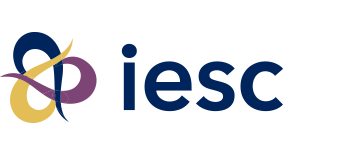IESC Consultants Lead Advocacy Training in Morocco
December 17, 2013
In Morocco, many Commercial Development Organizations (CDOs) – trade associations, cooperatives, business development organizations and chambers of commerce ‘ lack the capacity to support their members because of financial and technical limitations.
The Morocco Commercial Development Organizations Support Program, implemented by IESC and funded by the U.S. State Department’s Middle East Partnership Initiative (MEPI), provides demand-driven assistance to Moroccan CDOs. The IESC approach consists of a competitive grant fund for CDOs paired with expert technical assistance and training. The program targets CDOs that seek to facilitate their members’ exports and access to finance, work with the government institutions to improve business environment and create jobs.
IESC has contracted two consultants to lead the advocacy training. The consultants Mustafa Kharbachi and Amal Houate both have over 20 year of experience helping businesses improve their organizational capacity. The training took place Sept. 19th – 20th in Tangier and Sept. 24th – 25th in Fes and was attended by 47 participants representing 23 CDOs.
The main objective of the training was to introduce essential advocacy concepts and tools while using the ‘Experiential Learning’ methodology, which is based on the cycle of experience, reflection, generalization and, finally, application.
Unfortunately, the benefits of advocacy often go unnoticed in Morocco and many people hold negative perceptions. One of the lessons learned by the participants was that advocacy is actually a common practice used by many executives and elected officials.
The consultants emphasized the importance of planning and preparation. They asked the participants to design their own action plan for advocacy campaign based on the concepts and tools presented at the training. As a result, each participant left the training with a framework for independently developing an advocacy campaign.
This success story is made possible by the generous support of the American people through the United States Department of State. The contents are the responsibility of the International Executive Service Corps and do not necessarily reflect the views of the Department of State or the United States Government.

